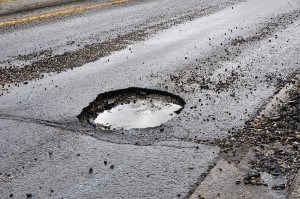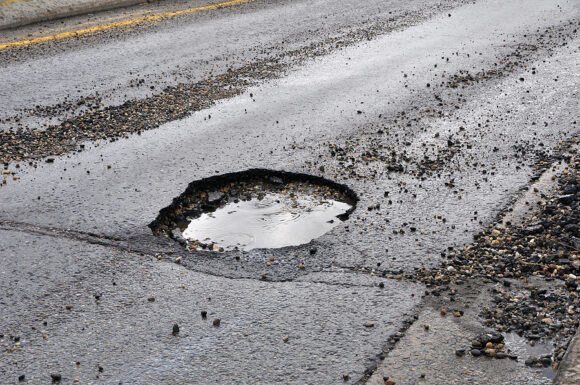Oil and natural gas production trucks are tearing up local roads, but the industries aren’t providing enough money to pay for the damage, according to members of a local task force expected to suggest ways to fix the growing problem.
While production has brought an influx of jobs and revenue in recent years, officials say local transportation budgets aren’t growing enough to deal with the resulting wear-and-tear on roads and bridges. The task force comprised of government and industry officials is expected to make recommendations this fall for the Texas Legislature.
 According to one official’s estimate, repairing damaged local and farm-to-market roads could cost $2 billion or more, the Fort Worth Star-Telegram reported on Monday. John Barton, deputy executive director of the Texas Department of Transportation, told the newspaper that the estimate doesn’t include the effect of heavy trucks and other equipment on interstate and Texas highways.
According to one official’s estimate, repairing damaged local and farm-to-market roads could cost $2 billion or more, the Fort Worth Star-Telegram reported on Monday. John Barton, deputy executive director of the Texas Department of Transportation, told the newspaper that the estimate doesn’t include the effect of heavy trucks and other equipment on interstate and Texas highways.
Johnson County, south of Fort Worth, sits atop part of the natural gas-rich Barnett Shale. In busier times, larger companies like Chesapeake Energy and Devon Energy voluntarily paid for repairs if officials could show them before-and-after assessments, County Judge Roger Harmon told the newspaper.
The smaller subcontractors that are more prevalent now are typically stingier, said Rick Bailey, a county precinct commissioner.
“There was a time when they were eager to throw you a bone,” Bailey said. “But when it’s over, it’s over.”
Bailey had to replace a worn 185-foot bridge with reclaimed steel from the Transportation Department and work done by county crews. The county has stopped resurfacing roads every three years and instead patches potholes as they arise.
DeWitt County, east of San Antonio, says it may need as much as $342 million to fix or replace nearly 400 miles of roads. The county expects to take in $7.2 million in property taxes for the current fiscal year.
Deb Hastings, executive vice president of the Texas Oil and Gas Association, an industry group, said companies were serious about trying to solve the problem. Hastings said taxes paid by the industry already could be distributed differently to local governments.
“Who should pay for it?” Hastings said. “That’s the kind of questions we in the industry are asking ourselves.”
Was this article valuable?
Here are more articles you may enjoy.


 Gas-Guzzler Revival Risks Dead-End Future for US Automakers
Gas-Guzzler Revival Risks Dead-End Future for US Automakers  ‘Structural Shift’ Occurring in California Surplus Lines
‘Structural Shift’ Occurring in California Surplus Lines  UK Floods Raise Specter of ‘Mortgage Prisoners’ Across Banks
UK Floods Raise Specter of ‘Mortgage Prisoners’ Across Banks 